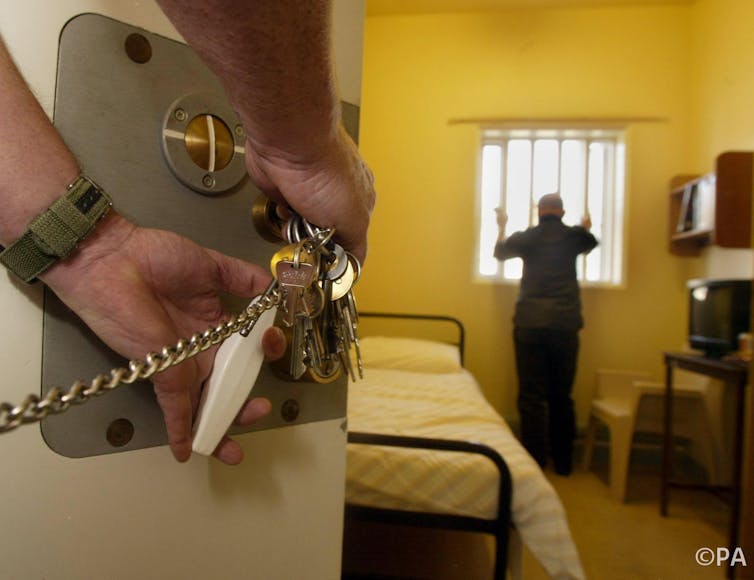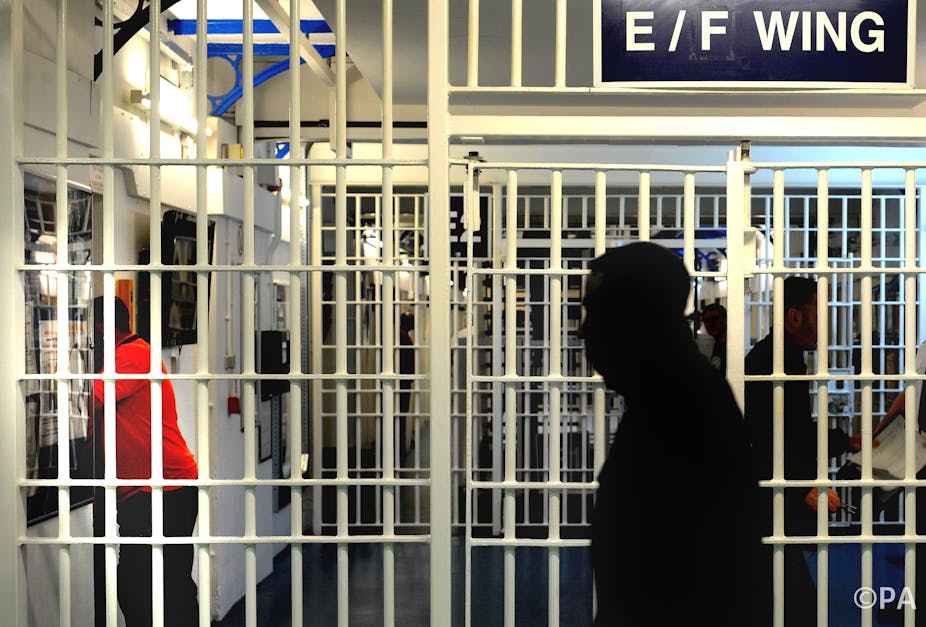The transition back to civilian life is a challenging period for military personnel – particularly when coupled with one or more of the well-publicised problems faced by veterans, including mental health issues, skills translation and the stigma surrounding military service.
In addition, there are several myths regarding the apparently inevitable transition from military service to a life of crime. These are, at best, unhelpful.
Recent government research estimates that military veterans make up 3.5% of the UK prison population. Although veterans are less likely than the general population to offend, they are more likely to be in prison for violent or sexual offences, and they make up the largest single occupational group in prison. However, this one dimensional statistic doesn’t consider the internal and external factors that are associated with offending. Instead, there seems to be a general, unchallenged assumption that it is a result of their military service.

The military offers many benefits – stability, education, monetary incentives – for individuals that may not have achieved otherwise. Research has shown that those from lower socioeconomic backgrounds are most likely to enlist in a bid to escape poverty, unstable home lives and antisocial peers; both individually and collectively these factors have also been found to boost the odds of criminal involvement.
Building on this, some criminologists claim military service is a positive turning point in an individual’s life course, acting as a “settling influence” and leading to criminal desistance. For some, however, serving in the military may have simply delayed or postponed their criminal activities, temporarily keeping them on the straight and narrow.
What defines a veteran?
The term “veteran” is a powerful title and one to be proud of – but it can also pigeonhole statistics and distort the facts. Veteran status is determined differently from country to country. Some require a minimum period of service, as is the case in the US, or operational service, such as in Australia.
The UK has one of the most inclusive definitions in the world, allowing individuals to claim veteran status on the basis of one day’s paid service. This all-encompassing definition allows individuals that may have left or been discharged within days of enrolling in basic training to claim veteran status. Considering this, can individuals who have never completed training claim that their offending is directly linked to their service?
Unfortunately, there will always be a number of individuals that misrepresent the extent or even the existence of their service. False claims and the embellishment of service experience undoubtedly distort the problem, and veteran crime statistics are used unfairly as evidence of veteran offending.
I spoke to David Henretty, a former Army officer who is now regional manager for Catch22 prison resettlement services. Mr Henretty said that he had worked with a cohort of offenders, “who have talked up their service credentials as a way of justifying and excusing their behaviours – even though there is clear and concise evidence to disprove their offending was as a result of their service”.

There are genuine cases of veterans in the criminal justice system who are receiving help and assistance to turn their back on this dark period of their lives. Positively, it has been reported that veterans in custody have lower levels of need in several areas – they are, for example, less likely to report receiving treatment for drug misuse while in custody compared to those who had no military background. Most veterans adapt to their new surroundings quickly, finding familiarity in the structured and hierarchical environment.
Needs and support
Unfortunately, there is limited evidence on the specific needs and experiences of veterans in the criminal justice system. Though some headway has been made, data on the contributions of pre-service adversity, military experiences, and post-service life are needed to help inform service providers.
In March 2016, the British Ministry of Defence announced that £4.6m is to be invested to provide complete support to veterans in the criminal justice system, with the aim of reducing re-offending by improving access to housing, employment opportunities and social skills.
At present, awareness, assessments and interventions aimed at the veteran prison community are developing with dedicated prison officers (commonly veterans themselves) and resettlement case managers who are tasked with identifying and supporting these individuals. Assistance from partner agencies and third sector organisations (e.g., armed forces charity SSAFA) is also gaining traction with appropriate structured support being rolled out across the prison estate.
While every veteran in custody is a tragic event and evidence of a missed opportunity to intervene at an earlier stage, it is important to remember that just because someone has served, it does not mean that their criminal activities are related to their service.
As always, there is room for improvements and commendable efforts are being made to help those veterans who find themselves drawn to a life of crime post-service. In the meantime, we need to break the wider misconception that all veteran criminal behaviour is directly attributed to military service.

